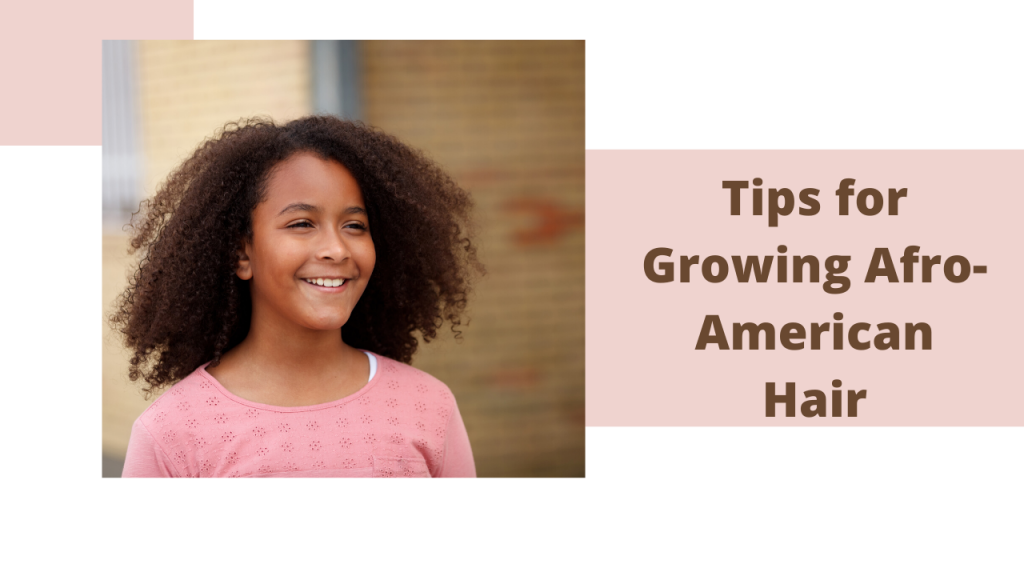People of African descent are often living with the false assumption that they can’t grow hair as quickly or as long as people of other races. This is simply not true. The kind of science behind hair growth that I’ve presented in other articles on this website is clear – hair grows at a natural rate of about half an inch per month or six inches (15.24 cm) each year. The real problem is that many people do things to their hair and their health that slow down or stop this natural growth. Having said that, African hair is unique and does require some special considerations when keeping it as health and growing as much as possible.
Optimal Overall Health is the Key to Growing Healthy Hair
This rule applies to anyone of any race. The plain fact of the matter is that your hair can only be as healthy as the rest of you, which means the health of your hair is an indicator of your overall health. The exception here, of course, is hair loss driven by genetics, but even that can be effectively combatted. I’ve tried to make it as clear as possible on this site that the best thing you can do for your hair is maintain optimal overall health by paying attention to hydration (drinking 8 glasses of water each day, 8 ounces each), getting plenty of aerobic and strength exercise each week, and maintaining a well-balanced, nutritional diet.
Foods that Stimulate Hair Growth
A hair-supportive diet is one that focuses on making sure you get enough iron, protein, biotin and zinc, which means the top 10 hair-growing foods are the following: Salmon (rich in protein, omega-3 fatty acids and vitamin D), walnuts (rich in protein, omega-3 fatty acids and vitamin E), oysters (rich in both zinc and protein), sweet potatoes (rich in beta carotene that is turned into vitamin A), eggs (rich in zinc, selenium, sulfur and iron), spinach (rich in iron, beta carotene, folate and vitamin C), lentils (rich in protein, iron, zinc and biotin), Greek yogurt (rich in protein, vitamin B5 and vitamin D), blueberries (rich in vitamin C and antioxidants), and poultry (rich in protein, zinc, iron and B vitamins). If you want fast-growing healthy hair, you must avoid junk food. And guess what – the rest of your body will benefit as well.
Everyone wants their hair to look a certain way, and many people do whatever it takes to achieve that desired look. Unfortunately, when that involves a lot of styling, drying, curling, crimping, coloring, and all the other ways we manipulate our hair, we aren’t doing any favors to hair growth. And yes, this includes relaxing your hair. All of the different treatments we use damage hair and slow down its growth. If you really want to grow your hair, you have to minimize all these different rough treatments. You also need to make sure you’re using a shampoo that actually helps your hair rather than hurting it, which is a trickier proposition than you might think. Too many shampoos have chemical ingredients in them that damage your hair in the long run. I’ve covered this in detail in another article on this website, so just know that you want to avoid shampoos and conditioners with the following ingredients: Sulfates, polysorbates, isopropyl alcohol, formaldehyde, hydrolysed collagen, parabens, propylene glycol, and polyethylene glycol. If you see any of those listed on a bottle of shampoo, put it back on the shelf. What you want instead are shampoos with nut and seed oils (jojoba, avocado and shea), acidic ingredients (cirtic acid or sodium citrate), panthenol (a type of vitamin B), and glycerin. Simple enough, right?
Protective Styles
When you do get your hair growing the length you want it, you can provide it with additional protection by using what are called protective styles, and they happen to look fantastic for African hair. The basic idea is to keep the ends both up and out of sight, which means they won’t get damaged by rubbing against clothes, pillows, car seats and so on. Protective styles include the chignon (your basic bun), braids (using either just your natural hair or in combination with extensions), the two-strand twist (very attractive, and something you can learn to do yourself), weaves, and flat twists (these can look quite stunning when done well and are similar to cornrows). You can easily find YouTube tutorials on how to do any of these common protective styles. Just remember that nothing should be so tight as to cause pain or potential breakage, and don’t keep any particular style in place for long periods of time.
Conditioning is Key
An absolute key to growing healthy African hair is to condition it properly. Castor oil turns out to be one of the best hair conditioning agents out there, so consider using it. You want an unrefined castor oil because it will have the riches array of nutrients, moisturizers and protectors your hair needs, including ricinoleic acid, omega-6 and omega-9 fatty acids, vitamin E and amino acid proteins. It’s basically a wonder treatment for any hair that I’ve covered in greater detail in another article on this site. The act of massaging it into your scalp and hair provides a boost to blood circulation to your hair follicles, which is essential for hair growth and health. It even has natural anti-bacterial and anti-fungal properties, which means your also protecting your scalp from infection from all kinds of nasty pathogens that can cause serious hair problems.
People of African descent can grow hair just as long and beautiful as anyone else on the planet. All it takes is treating your hair and your body in gentle ways that optimize your overall health. Be sure to check out the other articles on this site for more details on all the different topics covered above. Adopting the black hair care tips in this article will put you on the path to growing the long, healthy head of hair you’ve always wanted.



Comments are closed.